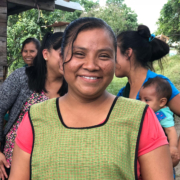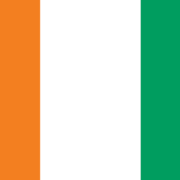West Africa
Burkina Faso
Burkina Faso is a landlocked country in western Africa consisting mostly of a savanna that is grassy in the north and gradually gives way to sparse forests in the south
West Africa
Burkina Faso is a landlocked country in western Africa consisting mostly of a savanna that is grassy in the north and gradually gives way to sparse forests in the south
Population: 22,103,000
Main Religion: Islam
Christians: 5,166,000
(Data source: Johnson T M and Zurlo G A, eds, World Christian Database (Leiden/Boston: Brill, accessed April 2022))
Provision of scholarships to allow displaced Children and Youth to have access to education system.
There former French colony gained independence as Upper Volta in 1960. The name Burkina Faso, which means “Land of Incorruptible People,” was adopted in 1984 under the leadership of Pres Thomas Sankara.
He was overthrown in a coupe by Blaise Campaoré in 1987. The latter ruled until 2014, when a civil uprising caused him to flee the country. A coup brought Roch Kaboré. Following the 2022 general elections the country suffered another coup Lieutenant-Colonel Paul-Henri Sandaogo Damiba, who had just been promoted to head the country’s third military region.
A Transition Government was set up under Damiba as president, but a further coup took place in October 2022: Damiba was ousted by Captain Ibrahim Traoré, who set up his own military government.
Burkina Faso is a Muslim majority country. Muslims are dominant in the north and east of the country, while Christian communities are concentrated in the central and southern regions. Followers of indigenous traditional African religions dominate the southern part of the country. Historically, the country has experienced a harmonious coexistence among the different religious groups.
The 2012 Constitution guarantees freedom of religion and the principle of separation of church and state. The pre-coup government required all religious groups to register with the Ministry of Territorial Administration and Decentralization to operate in the country. There has been no state-funding of religious schools, which thus operate independently. However, in past years, there have been anti-Christian campaigns and sentiment propagated by Islamic militants.
According to WCD 2023 estimates, 23.4% of the population follow traditional African religions. Many Christians and Muslims in the country also mix their faiths with various forms of traditional beliefs and practices. For instance, some Christians continue to embrace polygamy.
In recent years, the impact of violent Islamic militants in the country has been expanding, making their influence felt even in cities that had previously been beyond their reach. This has particularly been the case for the “Group for the Support of Islam and Muslims” (JNIM). Christians have been targeted and killed and churches have been destroyed. Christians of Muslim background are the most persecuted Christian group in the country. Similar attacks in Niger, Mali and the greater Sahel region are making the situation in Burkina Faso very serious. Christians have been targeted in villages, churches and workplaces. Hundreds of churches have been closed due to jihadist activities. Family and community members reject converts and try to force them to renounce their Christian faith, making them afraid to express their faith in public because of such threats. The scope for religious freedom for Christians, is contracting as jihadist ideologies gain traction and expand within the broader community.
Islamic radicalization is growing in Burkina Faso. The peripheries of the country are under the influence of Islamic militants and mosques and madrassas increasingly teach radical versions of Sunni Islam, thus causing even Sufi Muslims to be under threat. In these areas, there is no place for religious minorities. It was even reported that teachers in schools were threatened to hold Quran classes or face repercussions. Anti-Islamic sentiment is rising in Burkina Faso among other vigilante armed groups.

 Cote d’Ivoire
Cote d’Ivoire